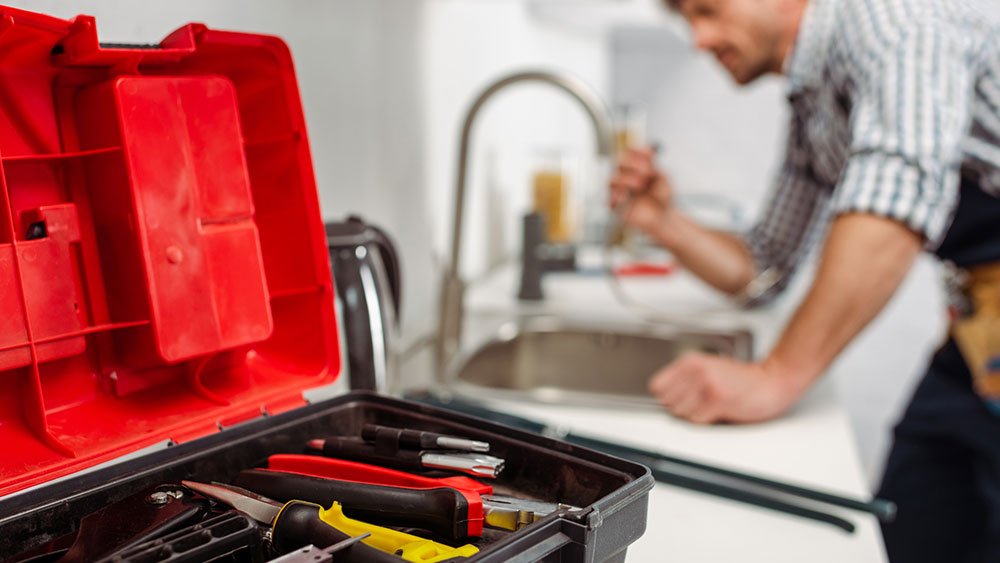
Owning a home is an exciting milestone, filled with the promise of creating lasting memories and building a secure future. But along with the joys of homeownership come the responsibilities of maintaining your property. For new homeowners, the sheer number of tasks involved in home maintenance can seem overwhelming.
This comprehensive guide is designed specifically for new homeowners, providing essential tips and practical advice to help you confidently navigate the home maintenance world. We’ll cover everything from creating a manageable maintenance schedule to tackling common household issues.
The Importance of Regular Maintenance
Embarking on a regular home maintenance routine may seem daunting initially, but it’s the cornerstone of preserving your home’s value and functionality. Think of it as preventative healthcare for your house. Just as we schedule annual checkups and routine screenings to safeguard our well-being, regular maintenance prevents minor issues from snowballing into major, costly repairs.
Moreover, a well-maintained home offers peace of mind. You won’t have to worry about unexpected breakdowns or safety hazards, allowing you to focus on enjoying your new space.
Building Your Schedule
The key to successful home maintenance is consistency. Establishing a schedule ensures that essential tasks are performed on time, preventing neglect and potential damage.
Here’s a sample home maintenance schedule to get you started. Remember, you can customize it to fit your specific home and lifestyle.
- Daily Tasks
- Quick cleaning and tidying.
- Checking for leaks or water damage.
- Inspecting appliances for any malfunctions.
- Weekly Tasks
- Vacuuming and mopping floors.
- Cleaning bathrooms and kitchen.
- Mowing the lawn (seasonally).
- Checking smoke and carbon monoxide detectors.
- Monthly Tasks
- Inspecting and changing HVAC filters.
- Cleaning refrigerator coils.
- Checking water softener salt levels (if applicable).
- Testing garage door auto-reverse feature.
- Seasonal Tasks
- Spring cleaning and maintenance.
- Summer home care (e.g., inspecting and cleaning air conditioner).
- Fall maintenance checklist (e.g., preparing for winter).
- Winterizing your home (e.g., insulating pipes, sealing windows).
- Annual Tasks
- Professional HVAC system inspection and maintenance.
- Chimney cleaning and inspection (if applicable).
- Roof inspection.
- Gutter cleaning.
Pro Tip: Use a digital or physical calendar to track maintenance tasks. Set reminders to ensure you stay on top of your schedule. You can also find helpful home maintenance apps that offer customizable checklists and reminders.
Remember, this is just a starting point. As you become more familiar with your home, you’ll identify specific maintenance needs and adjust your schedule accordingly. The key is to be proactive and consistent. You can keep your home in top shape and avoid costly surprises with little effort.
Essential Maintenance Tasks for Every Home
Maintaining your home involves caring for both its interior and exterior. Let’s delve into some of the most critical maintenance tasks that apply to nearly every home.
Exterior Maintenance
Your home’s exterior is its first line of defense against the elements. Regular upkeep can prevent costly damage and boost curb appeal.
- Inspecting and cleaning gutters and downspouts: Clogged gutters can lead to water damage, foundation issues, and pest infestations. Clean them at least twice a year or more frequently if you have overhanging trees.
- Maintaining the roof: Your roof protects your entire home. Inspect it regularly for missing or damaged shingles and address any issues promptly.
- Maintaining siding and exterior walls: Clean siding and walls annually to remove dirt, mildew, and algae. Inspect for cracks or damage and repair as needed.
- Landscaping and yard maintenance: Keep your yard tidy by regularly mowing the lawn, trimming shrubs, and weeding. This enhances your home’s appearance and helps prevent pest problems.
Interior Maintenance
A well-maintained interior is crucial for comfort, safety, and energy efficiency.
- HVAC system maintenance: Change air filters regularly and schedule professional inspections and tune-ups annually. This will ensure optimal performance and energy efficiency.
- Plumbing system upkeep: Inspect pipes and fixtures for leaks and address them promptly. Drain your water heater annually to prevent sediment buildup.
- Electrical system safety: Test GFCI outlets monthly and replace any damaged outlets or switches. If you notice flickering lights or tripped breakers, consult an electrician.
- Appliance care and cleaning: Follow manufacturer recommendations for cleaning and maintenance to prolong the lifespan of your appliances.
Seasonal Maintenance
Different seasons bring unique maintenance challenges. Prepare your home for each season to prevent damage and ensure optimal performance.
- Spring cleaning and maintenance: Tackle deep cleaning tasks, inspect your home for winter damage, and prepare for warmer weather.
- Summer home care: Focus on maintaining your air conditioning system, inspecting for pests, and caring for your lawn and garden.
- Fall maintenance checklist: Clean gutters, prepare your heating system for winter, and protect your home from harsh weather.
- Winterizing your home: Insulate pipes, seal windows and doors, and take steps to prevent ice dams and frozen pipes.
By incorporating these essential maintenance tasks into your schedule, you can proactively care for your home and avoid costly repairs down the line. Remember, a little effort protects your investment and ensures a comfortable, safe, and beautiful living space for you and your family.
Dealing with Common Home Maintenance Issues
Even with the best preventative measures, every homeowner will encounter common maintenance issues. Identifying and addressing these problems can save you time, money, and frustration.
Identifying and Addressing Leaks
Leaks can cause significant damage if left unchecked. Be vigilant in identifying and addressing them promptly.
- Water leaks: Look for signs of water leaks, such as damp spots on walls or ceilings, musty odors, or unusually high water bills. If you suspect a leak, locate the source and repair it immediately.
- Air leaks: Air leaks around windows, doors, and other openings can lead to energy loss and drafts. Seal gaps with caulk or weatherstripping to improve energy efficiency and comfort.
Pest Control and Prevention
Pests can be a nuisance and even pose health risks. Take steps to prevent infestations and deal with them effectively if they occur.
- Common household pests: Be aware of common pests in your area, such as ants, rodents, termites, and cockroaches.
- Effective pest control strategies: Keep your home clean and clutter-free, seal cracks and crevices, and store food properly. Consider natural pest control methods or consult a professional exterminator if you encounter an infestation.
Handling Minor Repairs
While some repairs require professional expertise, homeowners with basic DIY skills can handle many minor fixes.
- Basic DIY skills for homeowners: Learn how to perform simple tasks like unclogging drains, replacing light fixtures, and patching holes in walls.
- When to call a professional: If you’re unsure how to fix a problem or if it involves complex systems like electrical or plumbing, don’t hesitate to contact a qualified professional. Attempting repairs beyond your skill level can lead to further damage or safety hazards.
Remember, being proactive and addressing issues as they arise is crucial for effective home maintenance. By tackling common problems head-on and knowing when to seek professional help, you can keep your home in excellent condition and avoid costly repairs.
Home Maintenance Resources for New Homeowners
Navigating the world of home maintenance can feel overwhelming, but you don’t have to do it alone! Plenty of resources are available to help new homeowners gain knowledge, find inspiration, and connect with professionals.
Online Resources
The internet is a treasure trove of information for DIYers and those seeking home maintenance advice.
- Reputable home maintenance websites and blogs: Explore websites and blogs dedicated to home improvement and maintenance, such as Family Handyman and Bob Vila. Look for articles, guides, and checklists on various tasks, from cleaning tips to seasonal maintenance recommendations.
- DIY tutorial videos: Platforms like YouTube offer countless instructional videos on various home maintenance tasks. Visual learners can benefit from seeing step-by-step demonstrations.
Remember to verify the credibility of online sources before implementing any advice. Stick to websites and channels with a good reputation and positive user reviews.
Local Resources
Sometimes, the best resources are right in your community.
- Home improvement stores: Visit local home improvement stores like The Home Depot or Lowe’s for supplies, tools, and expert advice. Many stores offer workshops and classes on DIY skills and home maintenance.
- Local contractors and service providers: Build a network of reliable contractors and service providers for tasks that require professional expertise, like plumbing, electrical work, or HVAC maintenance. Ask for recommendations from friends, family, or neighbors, and read online reviews on platforms like Google, Angi, or Yelp before hiring anyone.
Additionally, consider joining online communities or forums for homeowners in your area, like those on Facebook. These platforms can be excellent sources of local recommendations and tips specific to your region’s climate and housing types.
Closing Points
As a new homeowner, embracing home maintenance is essential to protecting your investment and creating a comfortable, safe haven for you and your loved ones. While the list of tasks may seem daunting at first, remember that consistency and proactivity are key.
By creating a well-structured maintenance schedule, tackling essential tasks diligently, and addressing common issues promptly, you can avoid costly repairs and ensure your home remains in excellent condition for years to come. Don’t hesitate to leverage the wealth of online and local resources to guide you.
© 2024 xpertRealtyMarketing.


